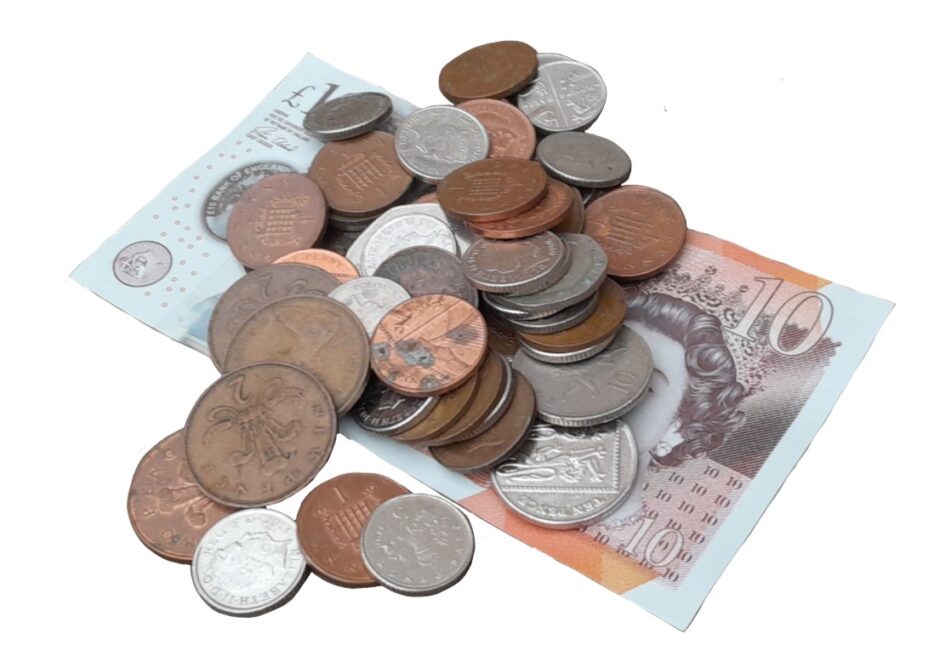The valuer wandered around the house, then strolled back into the kitchen and shrugged. “There’s some stuff we can sell, you might get a couple of hundred.” That would go a small way to offsetting the cost of the house clearance.
So that was the value of a lifetime’s accumulated possessions. The furniture they’d scrimped and saved for, the treasured knick-knacks, the “That’ll be worth something one day”, the tools he’d bought over the years and cared for so well, the kitchen stocked with outdated gadgets, all the things they’d held on to just in case… In the end, they had to pay to dispose of it. What had it all been worth?
Some people, on the other hand, manage to bequeath big estates to their families. This counts as success. But again—what is it worth? The Preacher who wrote Ecclesiastes gathered huge wealth, but then sat back and took stock:
I hated all my toil in which I toil under the sun, seeing that I must leave it to the man who will come after me, and who knows whether he will be wise or a fool?… This also is vanity (Ecclesiastes 2:18–19).
Most of us would agree that there’s more to life than money. Most would agree that actually there are many things that are more important—family, friends, health and happiness, for example. A life spent chasing money is a life wasted. ‘Whoever trusts in his riches will fall, but the righteous will flourish like a green leaf’ (Proverbs 11:28).
A Successful Life
This is the timeless advice of the Apostle Paul: ‘Godliness with contentment is great gain’ (1 Timothy 6:6). That, says Paul, is what makes for true success in life: to be at peace with God, and content with what He has provided. He continues: ‘For we brought nothing into the world, and we cannot take anything out of the world’ (v. 7). People have tried. The Egyptian pyramids were stocked with treasures which generations of Pharaohs buried alongside themselves in the hope of carrying them into the afterlife —but which only ended up as booty for grave-robbers and archaeologists.
Paul goes on: ‘But if we have food and clothing, with these we will be con-
tent’ (v. 8). He’s probably referring to the teaching of the Lord Jesus: ‘Do not be anxious, saying, ‘What shall we eat?’ or ‘What shall we drink?’ or ‘What shall we wear?’ For the Gentiles seek after all these things, and your heavenly Father knows that you need them all. But seek first the kingdom of God and his righteousness, and all these things will be added to you’
(Matthew 6:31–33). So Paul says, even if you only have life’s basics, you know that God is looking after you. When your priorities in life are right, the outcome will be contentment.
He continues: ‘But those who desire to be rich fall into temptation, into a snare, into many senseless and harmful desires that plunge people into ruin and destruction. For the love of money is a root of all kinds of evils. It is through this craving that some have wandered away from the faith and pierced themselves with many pangs’
(1 Timothy 6:9–10).
A Wasted Life
It happened in the First Century, in the time of the apostles when the Christian faith was new and vibrant, and it still happens now. People lost their faith and wandered away. There are various reasons this might happen, and one of them is ‘the love of money’. As Jesus himself said again, ‘No one can serve two masters, for either he will hate the one and love the other, or he will be devoted to the one and despise the other. You cannot serve God and money’
(Matthew 6:24). To serve God is to ‘seek first the kingdom of God and his righteousness’—to look forward to the Kingdom of peace, justice and godliness which is to come, and attend to living your present life in preparation for that time. This brings contentment. To serve money will lead to being ‘pierced with many pangs’.
Paul himself was probably a wealthy man, one of the elite of his generation. When he was converted and became a servant of Christ, he abandoned his prestige and wealth. He later recalled:
Whatever gain I had, I counted as loss for the sake of Christ. Indeed, I count everything as loss because of the surpassing worth of knowing Christ Jesus my Lord. For his sake I have suffered the loss of all things and count them as rubbish, in order that I may gain Christ and be found in him… that I may know him and the power of his resurrection, and may share his sufferings, becoming like him in his death, that by any means possible I may attain the resurrection from the dead (Philippians 3:7–11).
Paul’s second letter to Timothy was written while he was a prisoner, awaiting execution. He died with no wealth to his name, and nothing to pass on—except this: ‘Henceforth there is laid up for me the crown of righteousness, which the Lord, the righteous judge, will award to me on that day, and not only to me but also to all who have loved his appearing’ (2 Timothy 4:8). His had been a worthwhile life.



